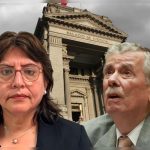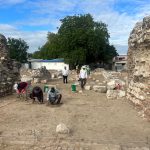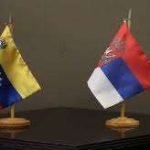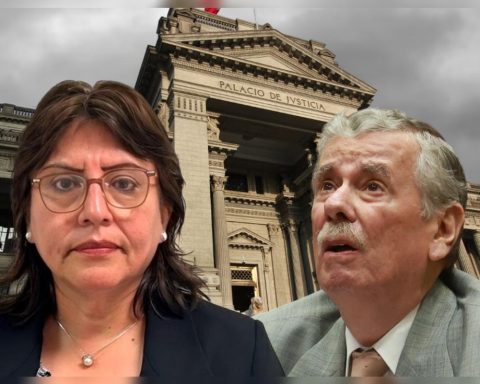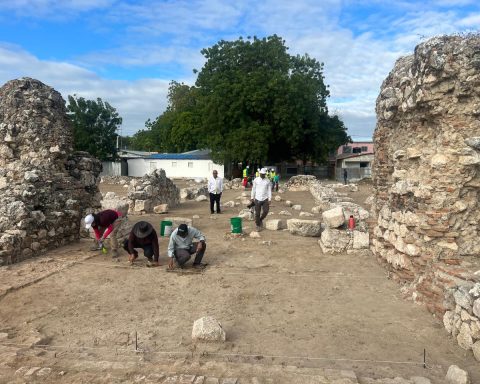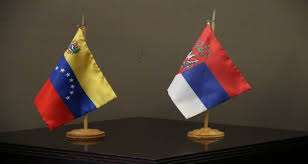Violation of due process, denial of the right to defense, excess of functions and confiscation of property; These are some of the “procedural irregularities” incurred by the regime of Daniel Ortega and Rosario Murillo at the time of canceling and intervening six private universities in Nicaragua. Situations that set a negative precedent and put the quality of higher education in Nicaragua at risk.
The lawyer and notary public, Yader Morazán, assures that the way in which the regime proceeded against the universities “is not valid”, because “no state decision, whether administrative or judicial, is valid if it is executed without due process and less without intervention and due defense of the parties involved”, as mandated by the Political Constitution of Nicaragua.
In this case, the Ministry of the Interior (Migob) accused the universities of not having presented their financial records and of having their boards of directors headless, when it was that same institution that refused to receive the documentation, according to the rector, Adrián Meza, from the Pablo Freire University, one of the canceled study houses.
In addition, Morazán values, even if the regime was right to cancel the legal status: “no parliamentary resolution is legal (due to lack of requirements), even in an urgent process, when it is submitted for discussion barely 24 hours in advance, since that the law provides 48 hours prior to discussion”.
The illegalization of the Polytechnic University of Nicaragua (Upoli), the Nicaraguan Popular University (Uponic), the Catholic University of the Dry Tropics (Ucatse), the Nicaraguan University of Humanistic Studies (Uneh) and the Paulo Freire University (UPF), was carried out unexpectedly last Wednesday, since it was not even on the agenda of the National Assembly.
Intervention and expropriation of universities
After the cancellation of the legal status, the intervention of the National Council of Universities (CNU) followed, whose president, Ramona Rodríguez, told the official propaganda media that this entity will take charge of the canceled universities and even promised to lower the fees they paid the students.
However, “the Constitution prohibits the intervention, expropriation and seizure of universities for regulatory reasons,” warns Morazán. All Nicaraguan universities “enjoy autonomy and this goes beyond academic freedom,” he adds.
The CNU also has no powers to intervene and administer universities, because according to articles 56 and 59 of Law 89, on the Autonomy of Higher Education Institutions, “it is only a coordination and technical advisory body, in charge of strictly academic matters,” underlines the lawyer.
On the other hand, non-profit legal entities are foundations, associations and organizations that fulfill some charitable mission. All private universities are constituted in this way by the altruistic role that education plays. “Even the Sandinista associations such as: INCANTO, AJUMANIC (Association of Judges and Magistrates of Nicaragua) or the Military Social Welfare Institute (IPSM), which manages the more than 70 businesses of the Army, are registered like this”, comments the lawyer.
The administrative route was not exhausted
It also maintains that the argument used by the National Assembly to cancel the legal status of the universities is invalid, since the universities —as legal entities— still had until the end of the fiscal year to present their financial statements. That is, until February 28, as provided in article 22 of the Tax Concertation Law.
“The National Assembly could only cancel the legal personality of the universities once the corrective process of the Department of Records and Controls of Associations of the Migob, who could have imposed fines or temporary intervention, had been exhausted,” said the lawyer.
In addition, Morazán values, “the corrective measures or sanctions of the regulatory body are appealable.” That is to say, they do not acquire sufficient force until any contradiction and allegation on the part of the affected party has been exhausted.
On the other hand, the destination of the liquidated assets “depends on the allocations provided for in the constitutive act or statutes of each university, and not under the intervention and appropriation of the State, because in these cases there were no omissions or doubts in this regard,” he stressed. .







